The books that you read are the books that possess you. In the end, you become a part of your collection, as it becomes a part of you.
—Walter Benjamin, Unpacking My Library: A Talk about Book Collecting
I had the pleasure of hosting my landlords at my apartment yesterday. The visit was prompted by my middle-aged German neighbors reporting my balcony weed situation (it was a situation), and my landlords deciding it was high time they checked in on their property. It took them two years—I’m not mad.
Thankfully, I got someone to come over and make my balcony perfect before the visit. I aim to please. Minor scoldings out of the way, the visit was mostly spent giving them a tour of the apartment their mother had lived in for ten years before I came along. They love what I’ve done with the place. I felt vindicated.
The conversation quickly turned to books—how many I had (~600), how many I’d acquired since moving here (too many), and how I planned to move them when I left Germany ($expense$ that shit). All in all, the visit was a success. Turns out landlords love a bookish tenant, weeds notwithstanding.


If you’ve been reading this newsletter for a while, there are three things you might have noticed: 1.) I read a lot of books, 2.) I buy more books than I read, and 3.) I have very few qualms about either of those things. I’m very interested in how people read and their relationships with books. I know people who only read secondhand or library books, others who love audiobooks and ebooks, and people like me who only read physical books. Some obsessively cull their libraries to keep them lean, while others let their collections swell and overflow, each book holding a memory of a place and time. I find myself somewhere in between.
Recently, a friend told me that while she occasionally felt anxious about her ever-expanding unread pile, she was mostly okay with it because she saw her library as a legacy to one day pass down to her children. I thought that was beautiful. As was this TikTok I came across a few days after.
 Tiktok failed to load.
Tiktok failed to load.Enable 3rd party cookies or use another browser
There was an incredibly boring and uninformed conversation making the rounds last year about people over-consuming books, and during that time, I would always justify my book-buying habits by pointing out that I didn’t buy clothes. (Still true—though ironically, my reason for not buying clothes has never been environmental. Happy coincidence, though.) Anyway, goodbye all that. Few things rankle me more than the pervasive need to over explain oneself. I read somewhere that a book collection only becomes a library when you hit 1,000 books. I find myself seduced by the idea of building towards that.
I’d love to know: what is your book collecting philosophy? In what mediums do you most enjoy reading? What’s your bookish guilty pleasure?
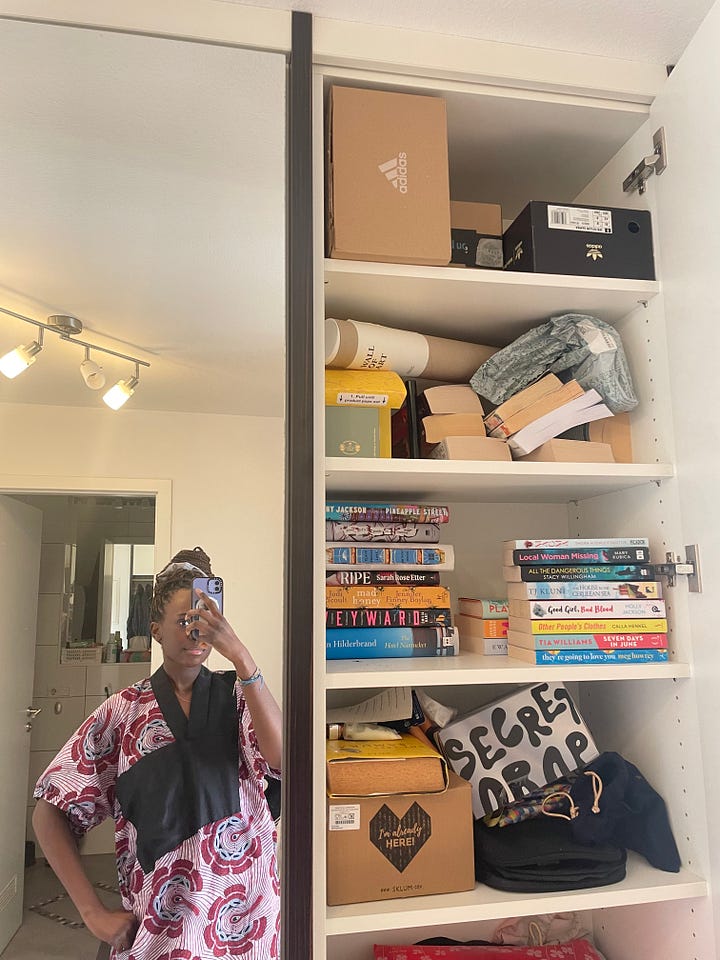
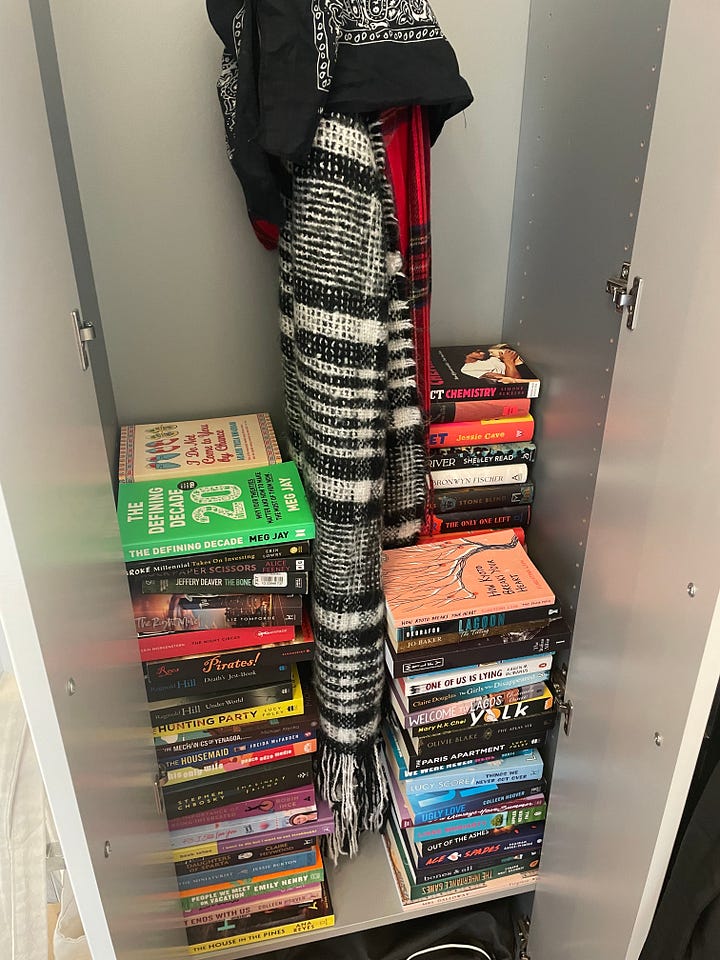
BOOKS I READ IN FEBRUARY

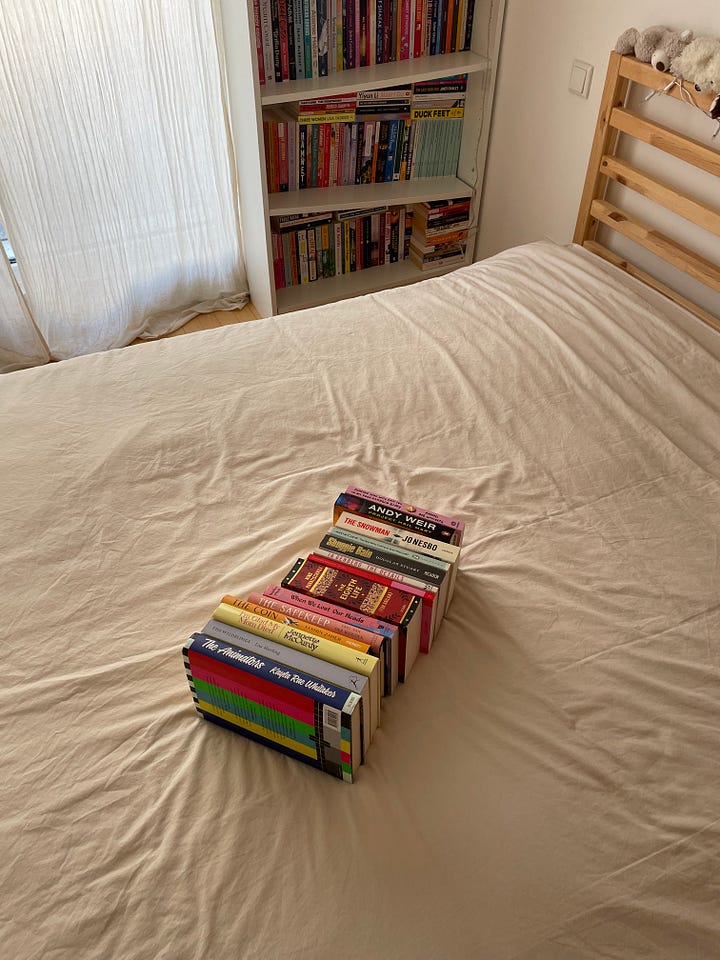
I’m Glad My Mom Died by Jennette McCurdy
I usually try to read very popular books off-season—that is, when the hype is over. I’m quite insular with my reading in that I’d rather the experience remain untouched by the general discourse until after the fact. The idea that played on my mind as I read this book was the idea of empathy—what it is, who deserves it, and from whom. I grew up watching iCarly, and tween Ochuko would have traded her life for Jennette McCurdy’s, no questions asked. She was rich and famous, what else was there to know? A lot, it turns out. I find that people often struggle to extend sympathy to others struggling in situations they assume they would not struggle in. Reading this was a reminder that we simply do not know, even when we think we do, and that suffering is an experience unique to the sufferer and cannot be mediated by our own perspective of the sufferer’s circumstances.
Big Fan by Alexandra Romanoff
After reading and enjoying Book Lovers by Emily Henry last month, I decided to get back into my romantic fiction bag—albeit with something shorter. 200 pages of rom com is my sweet post. Big Fan is an 831 Stories novella about a hotshot political strategist who gets the chance to work with her childhood celebrity crush. The usual romance tropes unfold—indecision, sexual tension, an almost breakup, and, finally, a happily ever after. I read this book in a day, which is how I like to consume genre fiction—quick shots of gratuitous endorphins to last me a whole month.
When We Lost Our Heads by Heather O'Neill
I was about halfway through this book before I realized I was not reading a fictitious retelling of Marie Antoinette’s childhood. No, I had been reading about an entirely different fictitious Marie—Marie Antoine—who lived in 1870s Montreal. What a treat. That I finished this 400+ page book in one sitting on a Thursday night when I actually had plans is all you really need to know about this book. Growing up, I loved historical fiction—less war stories, more rich aristocrats in petticoats and whalebone corsets. The part of my brain that still indulges such books is the same part of my brain that devoured Fourth Wing in one sitting and all the ACOTAR books in a month. I don’t unleash her often. At the center of this story is an obsessive, homoerotic female friendship where both parties are, frankly, awful people. It’s about wealth, beauty, power, and privilege. All the good stuff.
The Spy Who Came In from the Cold by John Le Carré
The secret to reading as many books as I do is giving yourself permission to read entire books in one sitting. There were quite a few of those this month. I’m pretty sure I read this on a Friday night—I remember closing my laptop after writing the newsletter and ignoring all incoming comments “till a later date.” There are two reasons I binge a book. The first is that I love it so much I can’t put it down. The second is that I like it enough not to DNF but not enough to subject myself to another day of reading it. The latter was the case when I started this book—at least at first. The Spy Who Came In from the Cold is supposedly the best spy novel ever written. During the Cold War, a British spy desperate to “come in from the cold” is given one last assignment: infiltrate East German intelligence and dismantle it from within. It started off slow, and it took me a while to grasp what was happening with the characters and plot. But once it clicked, it clicked. I was hooked. So hooked. A spy novel is sort of like a thriller, except you’re in on the jig, and in this case, the manic characters are all pretty morally ambiguous. Lots of big-brain stuff. Let me know if you have any spy novel recommendations.
The Details by Ia Genberg
As a woman lies bedridden with a fever, she reflects on four significant relationships from her past, drawing portraits of them—and herself—at different points in her life. This was such a tiny book. I spent that Saturday morning on my couch, reading it cover to cover. My first thought upon finishing was, Oh no, why did I read this in one go? This is a book meant to be savoured, read slowly, and meditated upon—because the book itself is a meditation on self and life, on relationships and regrets. It’s hard to pinpoint what makes this book so special, but if you enjoy detailed character studies and Sally Rooney-esque interpersonal dynamics, I’d give it a try.
The Coin by Yasmin Zaher
I had a very detailed, fun conversation with Pandora about this book, so you can go read it here. TL;DR: Didn’t love it, but glad I read it.
Shuggie Bain by Douglas Stuart
This book follows Shuggie, a sensitive boy growing up in 1980s Glasgow, as he struggles to care for his charismatic but alcoholic mother, Agnes. Amidst poverty and a harsh working-class environment, Shuggie navigates both his mother’s decline and his own outsider status. This novel is a heartbreaking yet tender exploration of love, resilience, and the crushing weight of addiction. It was like so many books I’ve read before, yet like nothing I have ever read. To be honest, I mostly felt relief upon finishing it. I couldn’t quite say how I felt about what I had read. From start to finish, this book is heavy—made heavier by the knowledge that it does not and will not get better. I think the magic of Douglas Stuart is his ability to pull you into these dreary, hopeless situations, daring you to hope, only to crush you over and over. Just like Shuggie was. A book that felt similar was The God of Small Things by Arundhati Roy. There’s something uniquely painful about witnessing the suffering of children as a result of systemic and parental failure.
Someone Who Will Love You in All Your Damaged Glory by Raphael Bob-Waksberg
This was the book I chose to read during the five hours I spent at the hair braiders—a collection of offbeat love stories from the creator of BoJack Horseman. I had hoped it would be a quirky version of Modern Romance, which I read and loved two years ago. Instead, it turned out to be something quite different—perhaps a bit too weird for me. I gave up exactly halfway through. Two people whose tastes I trust said they loved this book, though, so I’m shelving it under DNF for Now. Another day, another mood—who knows.
The Animators by Kayla Rae Whitaker
Sharon and Mel, best friends and creative partners, have spent a decade making their mark in the male-dominated world of animation. Sharon is quietly ambitious yet full of self-doubt, while Mel is brash, unapologetic, and always the life of the party. Their hard work pays off with the release of their first full-length feature—a bold, visually striking film drawn from Mel’s painful childhood. But as success brings long-buried tensions to the surface, both personal and professional, their partnership faces challenges neither of them saw coming. Ever since reading The Lying Life of Adults and The Blind Assassin, I’ve found myself drawn to books that explore complex female friendships. The Animators reads like a mix of The Interestings and Tomorrow x3, delving into art, friendship, and how storytelling helps us process pain and identity. A recurring theme in these novels is the trope of one confident, manipulative yet ultimately flawed friend paired with a more subdued, observant counterpart—who usually ends up on top. I find it interesting that this dynamic is a frequent way female friendships are explored in literature, especially since it’s not one I often encounter in real life (at least not after high school). This was my major gripe with The Animators. There was so much that could have been explored that wasn’t.
The Safekeep by Yael Van der Wouden
It is 1961, and the rural Dutch province of Overijssel is quiet. The war is truly over. Living alone in her late mother’s country home, Isabel knows her life is as it should be—led by routine and discipline. But all is upended when her brother Louis brings his graceless new girlfriend, Eva, leaving her at Isabel’s doorstep as a guest for the season. When things start disappearing around the house, Isabel’s suspicions begin to spiral. But suspicion soon gives way to infatuation—leading to a discovery that unravels all Isabel has ever known. Yeah, so this book is as good as everyone says it is. Read-in-one-sitting good. I was struck by how deftly Van der Wouden was able to control the plot, building tension between the characters, skirting around the novel’s ultimate conceit, which in itself packed a punch. The fact that this is a debut novel is… wow.
Project Hail Mary by Andy Weir
After sitting on my shelf for two long years, this was my second DNF of the month—and perhaps my biggest bookish disappointment of the year so far. I wanted to love this book. Everyone loves this book, even people who don’t like science fiction! And to be fair, I think I get it. The first 100 pages had me locked in. I loved the mystery, the humor, and the structure. I loved the protagonist. Unsurprisingly, it was the sci-fi elements that lost me. When I read a book, I see it play out like a movie in my head. I assign characters faces and outfits (usually based on real-life actors, lol), settings come alive in my mind, and the whole thing unfolds like a reel with each page. Perhaps counterintuitively, this is why I don’t enjoy overly descriptive narratives. My mind gets bogged down trying to reconcile those minute details with the movie playing in my head, creating more friction than I’d like. So if you have a brain like mine, a book like this—where a lot of abstract stuff is being explained—feels like work. And not the kind of work I’m necessarily looking for when reading a book. I guess I just didn’t think the payoff was worth it. I figured out the rest of the plot up to the ending, so I don’t feel like I missed much. Hated the ending anyway.
The Wildelings by Lisa Harding
I picked this one up impulsively on a Saturday night after a dinner party. Usually, I let books sit on my shelf for a while, but something about this one—a proof I’d just received the day before—called to me. The Wildelings is dark academia in the vein of The Secret History and If We Were Villains. It follows childhood best friends Jessica and Linda, whose bond is built on a sinister power imbalance. At Wilde, an elite university in Dublin, Jessica quickly finds her place at the center of a new friend group, with Linda by her side. But when Linda starts dating Mark, an older philosophy student with unsettling ideas about self-discovery, the group dynamic begins to shift—subtly at first, then catastrophically. I flew through this book. It was completely addictive. But in hindsight, some plot points felt half-baked, and the characters weren’t as believable as they could have been. It didn’t feel tight. Still! A gripping read. Out in April!
The Eighth Life by Nino Haratischwili
I read this book for most of February—50 pages a day until I made it through all 900+ pages. There’s something truly special about sitting with a book for that long, getting to know each character so deeply they feel real. The Eight Life is a family saga like nothing I’ve ever read. It follows a Georgian family at the start of the twentieth century, then tumbles through history in a story that spans a century of love and loss, wars and heartbreak, revolutions and counterrevolutions. Family sagas are my absolute favorite thing to read, and this was a damn good one. Adding to the richness of the plot was the experience of witnessing a century of Georgian history through these characters’ perspectives. It was so wonderfully done—at once tender and riveting, but mostly heartbreaking. This book was so so special. Easily my favorite read of the month.
The Snowman by Jo Nesbø
All great reading months start (or end) with a thriller. This one was good—stay-up-till-2 a.m. good. Our hard-boiled Norwegian detective, Harry Hole, and his striking young sidekick are hunting down a serial killer who leaves snowmen at the scene of his crimes. Sounds cheesy, but it works. I read loads of thrillers, listen to tons of true crime, and binge Law & Order like no other. All that to say, I know my shit. Unfortunately, knowing my shit also means I usually spot a thriller’s endgame almost immediately. With this book, I knew who the killer was from the first scene he appears in, which put a bit of a damper on the whole thing. Not too much of a damper, though—I still enjoyed seeing how the plot unfurled, and there were a few twists that surprised me. A solid thriller? Yes. Will I be reading more Harry Hole? Hmm, probably not.
NEW ON MY SHELF
February was a big month for my library. I was gifted a bunch of amazing books by publishers, some proofs and some new releases. It was also my birthday month and Valentine’s Day, so there was a lot of self indulgent self gifting too. Bless my soul. And wallet.

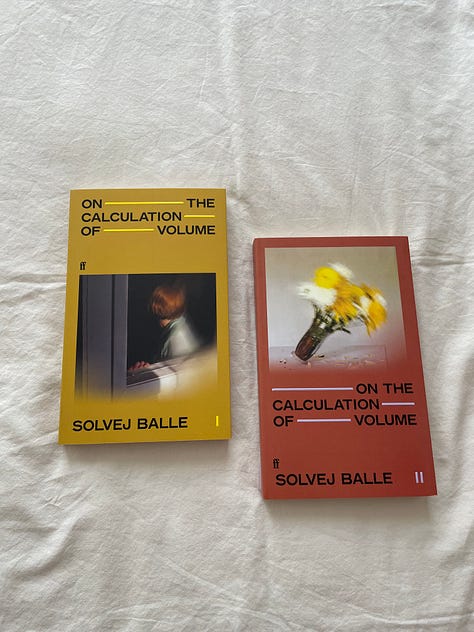
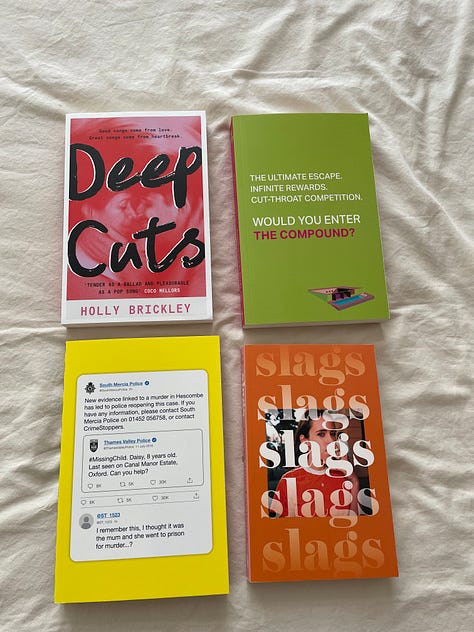
Albion by Anna Hope
Old Soul by Susan Barker
Hunchback by Saou Ichikawa
Great Big Beautiful Life by Emily Henry
On the Calculation of Volume I by Solvej Balle
On the Calculation of Volume II by Solvej Balle
Deep Cuts by Holly Brickley
The Compound by Aisling Rawle
Making a Killing by Cara Hunter
Slags by Emma Jane Unsworth


The List of Suspicious Things by Jennie Godfrey
The Road to the Country by Chigozie Obioma
Idle Grounds by Krystelle Bamford
The Hounding by Xenobe Purvis
Sleep by Honor Jones
Fun and Games by John Patrick McHugh
Happiness Forever by Adelaide Faith
WHAT YOU READ THIS MONTH
Each month, I’ll be asking some of my favorite readers to share a book they read that month—one they loved or one they hated—and tell me all about it. Readers are welcome to be featured. Just reply to one of my emails with a selfie and a paragraph at any point during the month :)
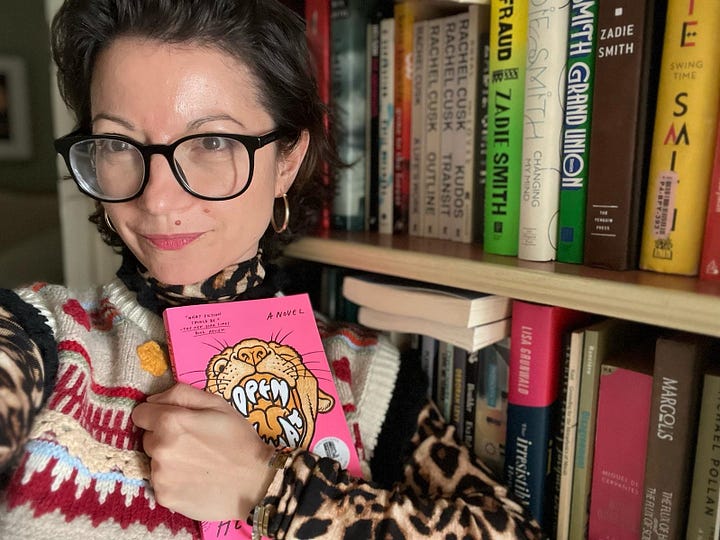
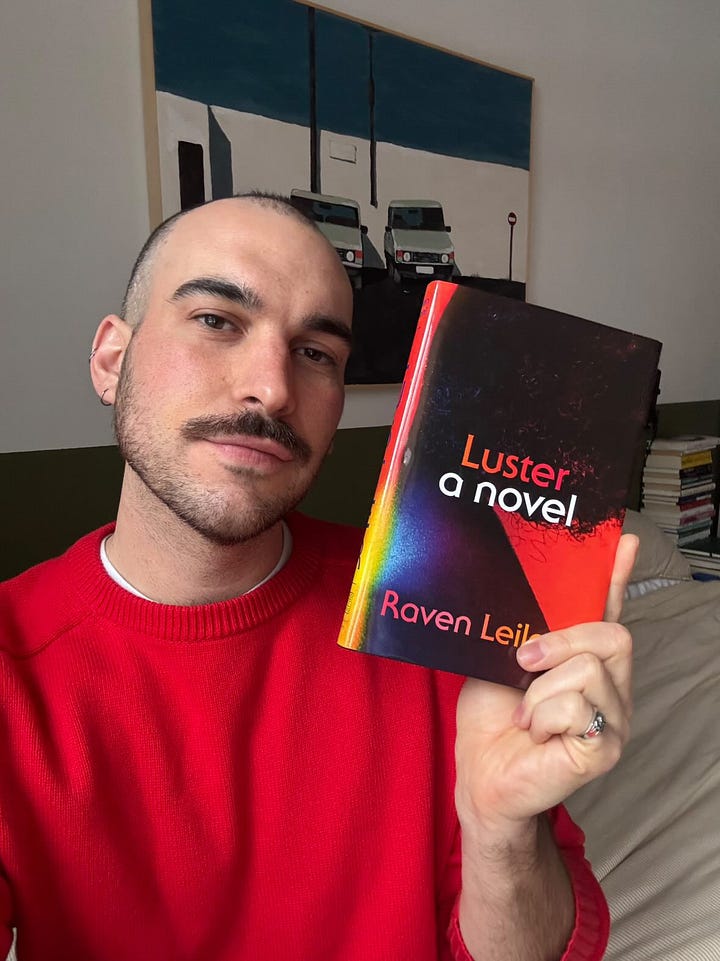
read Open Throat by Henry Hoke
This book wrecked me. Hoke’s novel, written as narrative poetry from the perspective of a queer mountain lion in the Hollywood Hills, is unlike anything I’ve read. It’s tender, hypnotic, and impossible to put down. I pick what I read intentionally and for that reason I love many books. But this one? I’m obsessed. What gutted me wasn’t just the lion’s voice—it was the way they see us. A being we call wild, brought to tears by our carelessness, our waste, our loneliness, our strange, self-destructive habits. The book pulses with hunger, both physical and existential, tapping into something raw and restless in all of us. I know—a mountain lion narrator sounds ridiculous. But trust me. I read this book in one feverish sitting and immediately wanted to start over.
Did I read the Brooklyn Cool Girl book of 2020, in 2025? Well, yes. This novel is about Edie, a twenty-something girl living in NYC, who’s working a job she doesn’t care about and having sex with people all over town. Things in her life get derailed when she starts dating a man in an open marriage and somehow finds herself moving in with him, his wife, and their adopted daughter. What follows is 200 pages of tense and taut mess that I couldn’t look away from. Luster investigates power, sexual, and racial dynamics with razor sharp wit and delicious writing. Every few pages, there would be a sentence so incredible that I was left winded after reading it—which more than made up for a plot that slightly meanders in the second act. This was a reread for me, and was just as good as I remembered. Raven Leilani, we need the next novel stat!
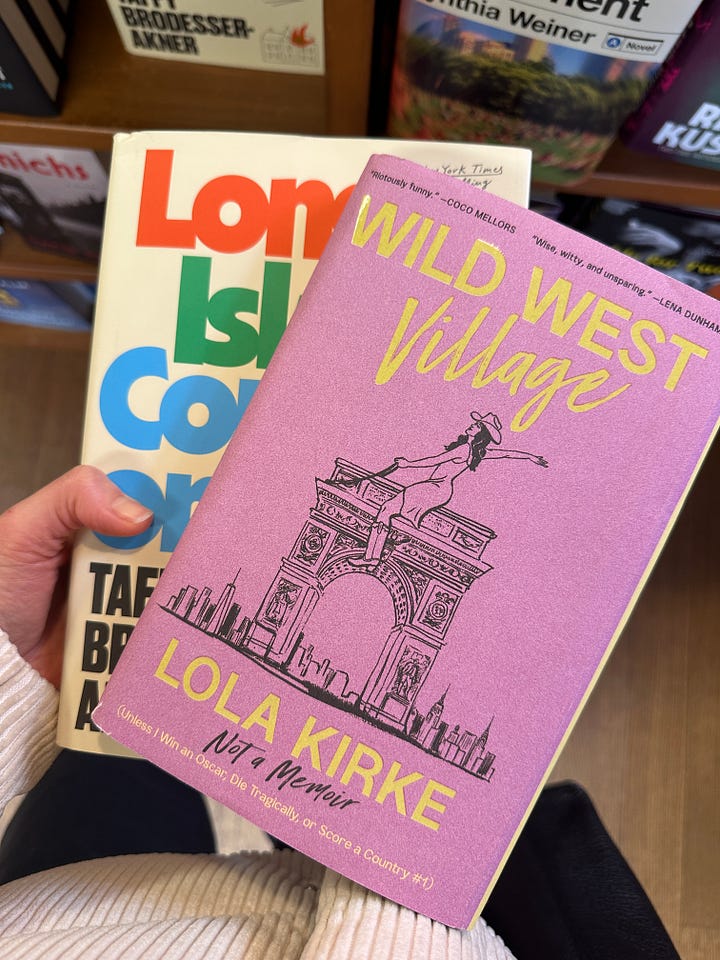
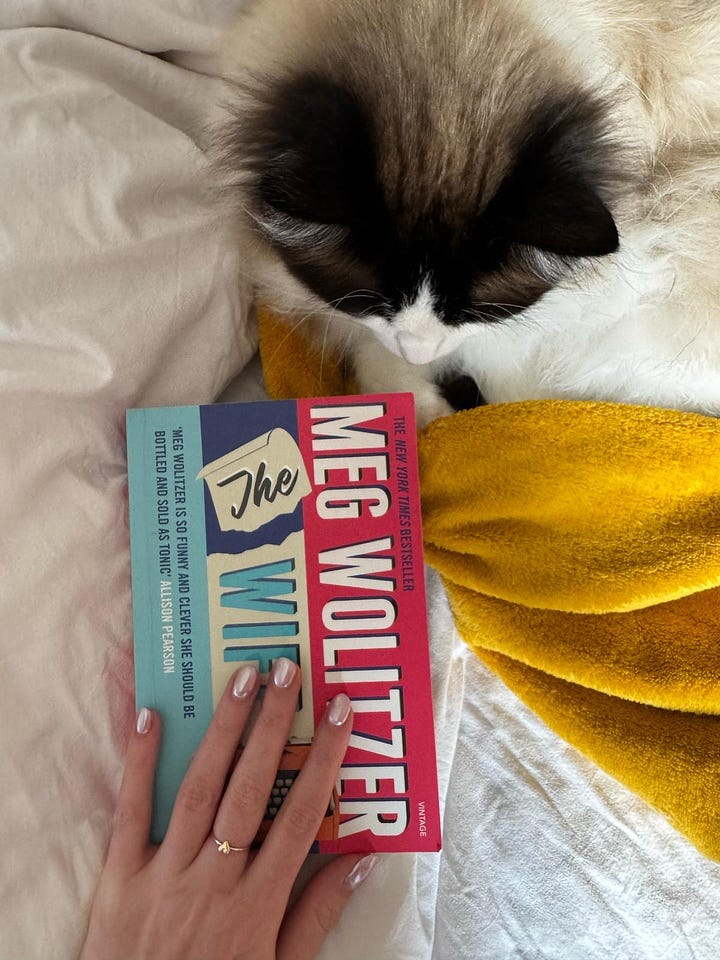
read Wild West Village: Not a Memoir by Lola Kirke
I finished Lola Kirke’s not-a-memoir memoir this month knowing that I’d see her in conversation with her sister, Jemima. It read like a conversation with a friend who’s observing a specific snippet of New York it-people culture. It’s light, it’s easy, and it begs an interesting question of what a memoirist owes the people she writes about as characters in her own story. Lately I’d been really unmotivated to read; every book has felt dragging and dull. That’s definitely a me problem. Anyway, this book hit the reset button — I finished it in less than a week. It was like candy for my brain.
read The Wife by Meg Wolitzer
I’m slowly reading my way through Meg Wolitzer’s oeuvre. This is the third I’ve read—after The Interestings and The Female Persuasion. It is a much shorter read—with less narrative propulsion—but no less beauty, lyricism, or psychological insight. It follows the marriage of famous novelist Joe Castleman and his wife Joan. Actually, it follows Joan, as she travels with her husband to Helsinki to receive a prestigious literary award and, along the way, confronts the self she could have been. Because Joan cradles a secret that would’ve (could’ve, should’ve) changed her life. As the blurb says: ‘It’s also an unusually candid look at the choices all men and women make for themselves, in marriage, work, and life.’ If you liked On Chesil Beach, you’ll LOVE this.
What did you read last month? What did you love and what did you hate? Let me know in the comments XO.



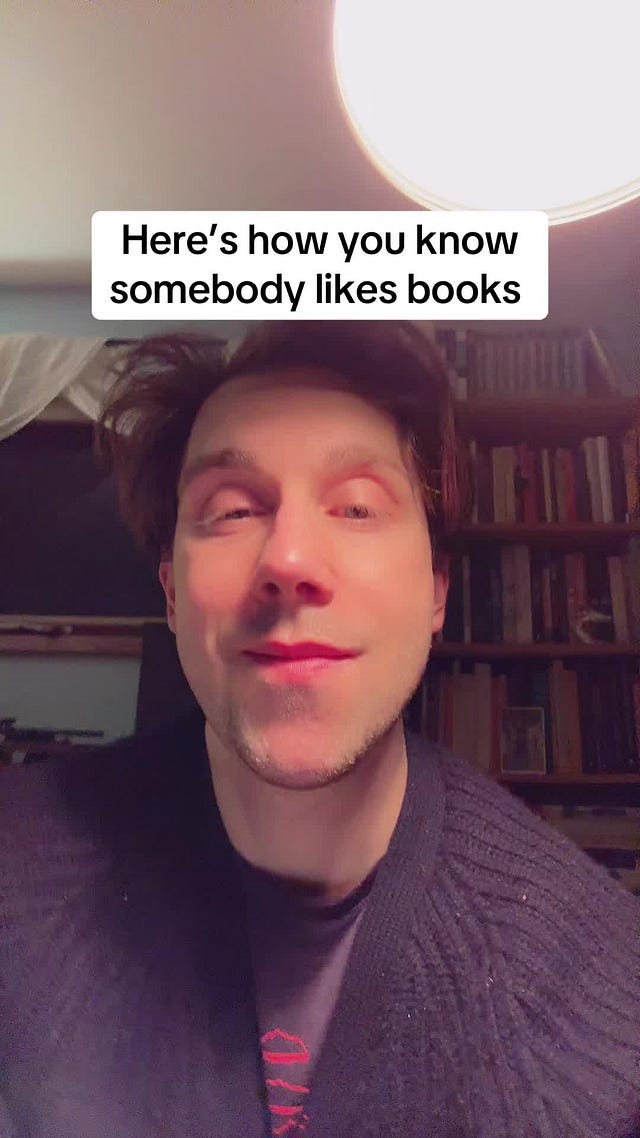

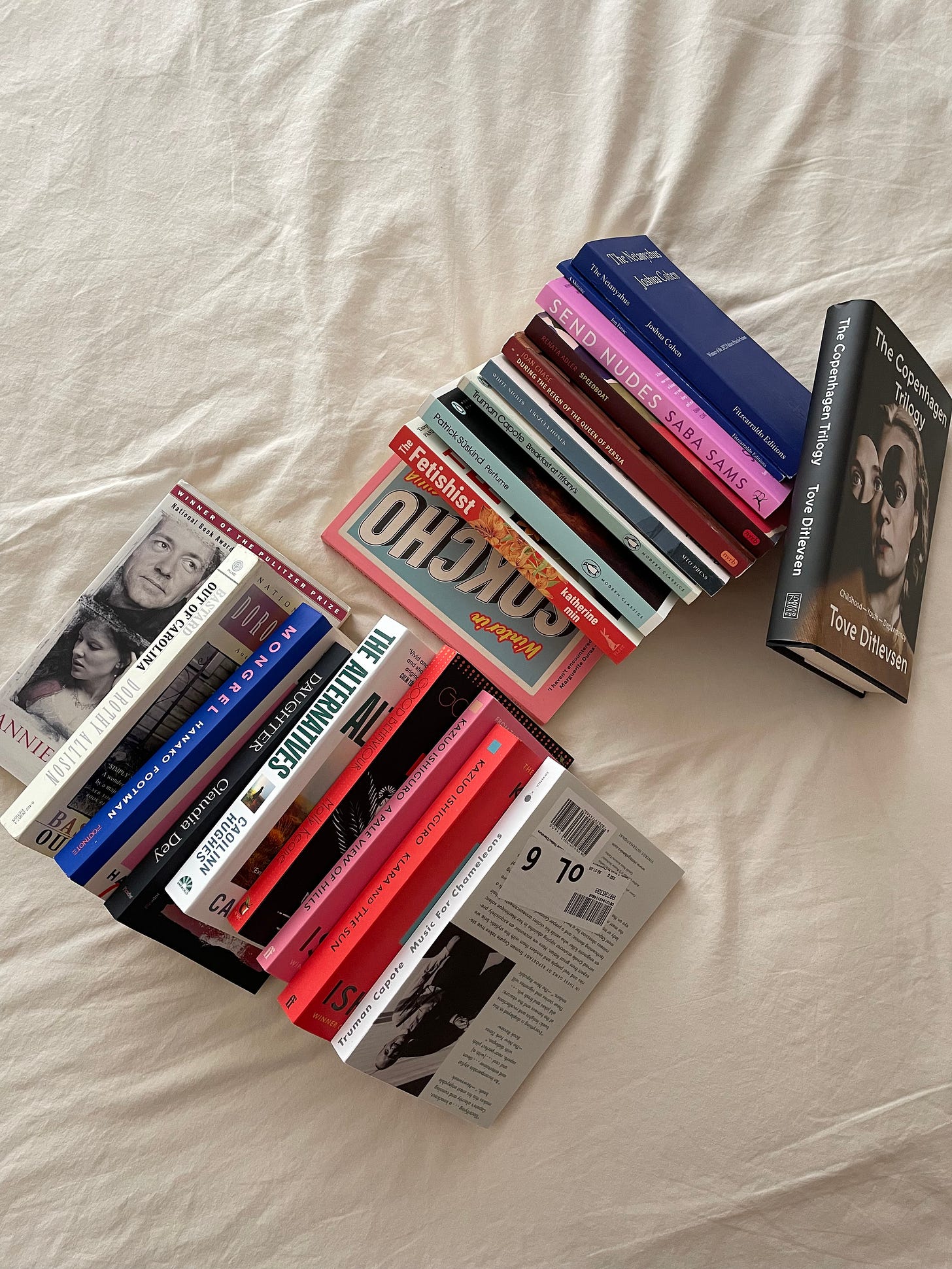
From one book buyer to another … I don’t think it’s possible to buy just the right amount of books, to be always in the clear, with a manageable backlog. It’s like a law of the universe - books beget books.
I live for these monthly roundups!! It’s *so* refreshing to find someone with such an overlap in book tastes! And I love how wide your palette is - makes me excited to try some new ones I wouldn’t have! I now have a sub list on my library holds list called “recos from ochuko” so I’ll know to credit you when I inevitably love them haha